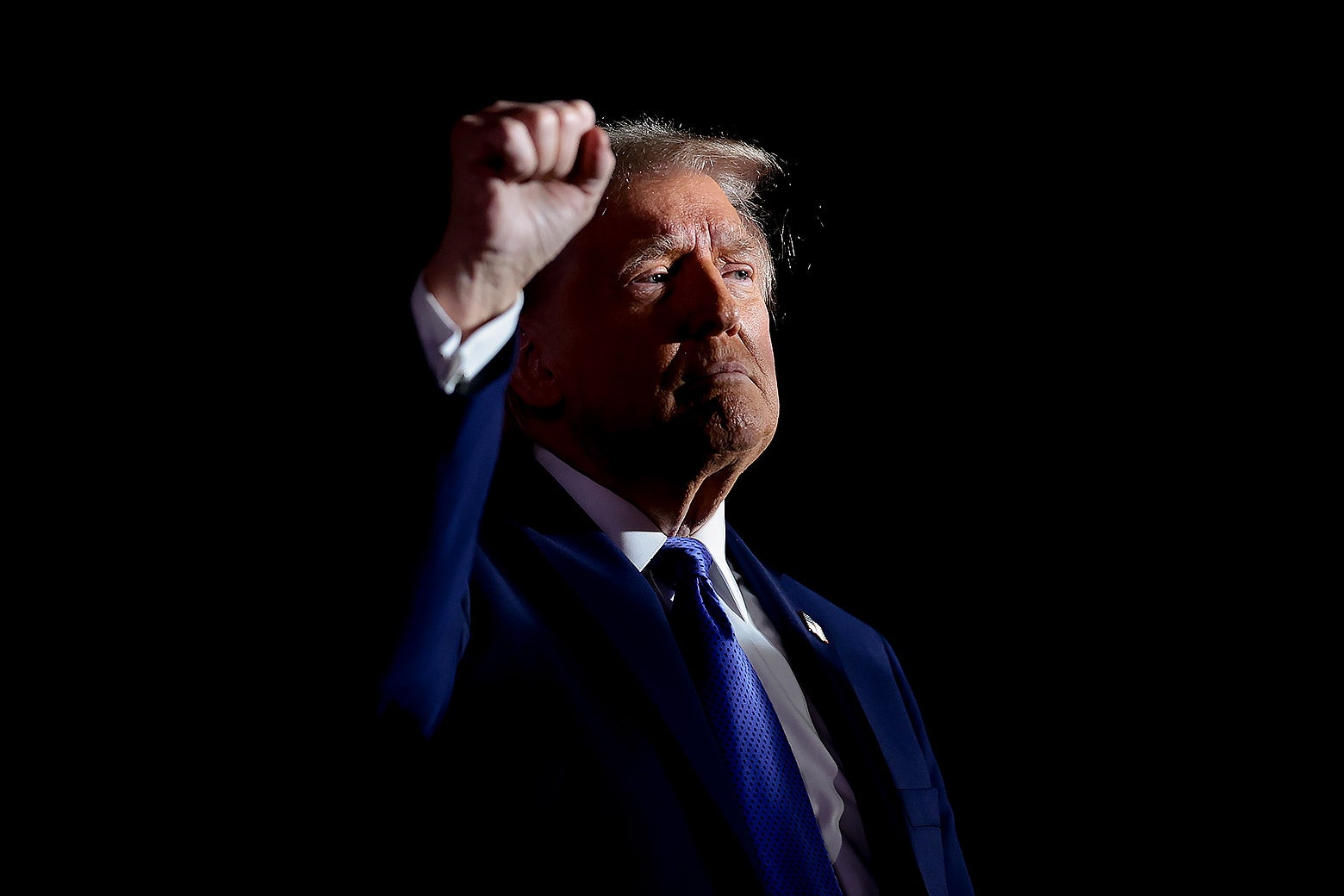Politics
Kamala Harris Weakens Key Argument Against Trump

Election 2024: Why is Kamala Harris avoiding a major critique of Trump?
Recently, discussions around Donald Trump have intensified following a revealing interview with his former chief of staff, John Kelly. Kelly, by consulting a quick online definition, pondered Trump’s associations, labeling him as far-right and authoritarian. His reflections come amid claims about Trump’s desire for the type of generals that Adolf Hitler commanded, sparking outrage yet again, particularly across conservative media. However, the Democratic response has been tepid at best, with Kamala Harris and others failing to capitalize on telling moments about Trump’s extremist tendencies.
The question arises: Why do many Americans, including segments of the left, underestimate the threat posed by Trump in a potential second term? Part of the issue lies in Democrats’ reluctance to directly address some of Trump’s most controversial policies, especially regarding immigration.
Trump’s approach to immigration was central to his ascendancy and led to catastrophic decisions like the Muslim ban and the now-infamous child separation policy. Within fascist narratives, blaming immigrants serves as a common refrain, and the consequences of mass deportations could lead to devastating societal damage, with millions of American families potentially torn apart and immense economic repercussions looming large.
Democrats, it seems, are hesitant to tackle immigration head-on, perhaps fearing the political backlash. Public sentiment has shifted dramatically—citizens now express significant concern over immigration levels. However, failing to discuss the historical implications of Trump’s immigration policies is a major miscalculation.
The prospect of mass deportation would not only displace millions but would inflict severe damage on various sectors, creating long-lasting negative effects. The implications echo some of the dire moments from Trump’s prior term, which saw policies implemented without regard for human lives.
Biden made a strong stance against these issues during the 2020 campaign, pledging to restore dignity to immigrant communities. But Harris’s approach appears cautious, avoiding contentious conversations around the repercussions of mass deportation policy and sidestepping clear stances on issues affecting Dreamers.
In trying to play it safe, Harris has lost an opportunity to reshape the narrative, focusing instead on her law enforcement background and border security plans. This strategy appears not only timid but fundamentally ineffective; one cannot win a debate they refuse to engage in.
An Atlantic article highlighted the shocking remarks attributed to Trump regarding a Mexican American soldier’s funeral expenses, illustrating his callousness towards immigrants. Discussions around immigration tap into Trump’s troubling perspectives, revealing a dangerous ideology that should concern voters. However, as long as these conversations remain under the radar, the chance to expose the depth of Trump’s anti-immigrant sentiment diminishes.
As we approach the election, the failure to confront Trump over such a critical issue stands as a major opportunity lost. Addressing immigration more directly could shed light on his radical ideologies and provide a clearer warning to voters about the risks of a potential Trump presidency.
